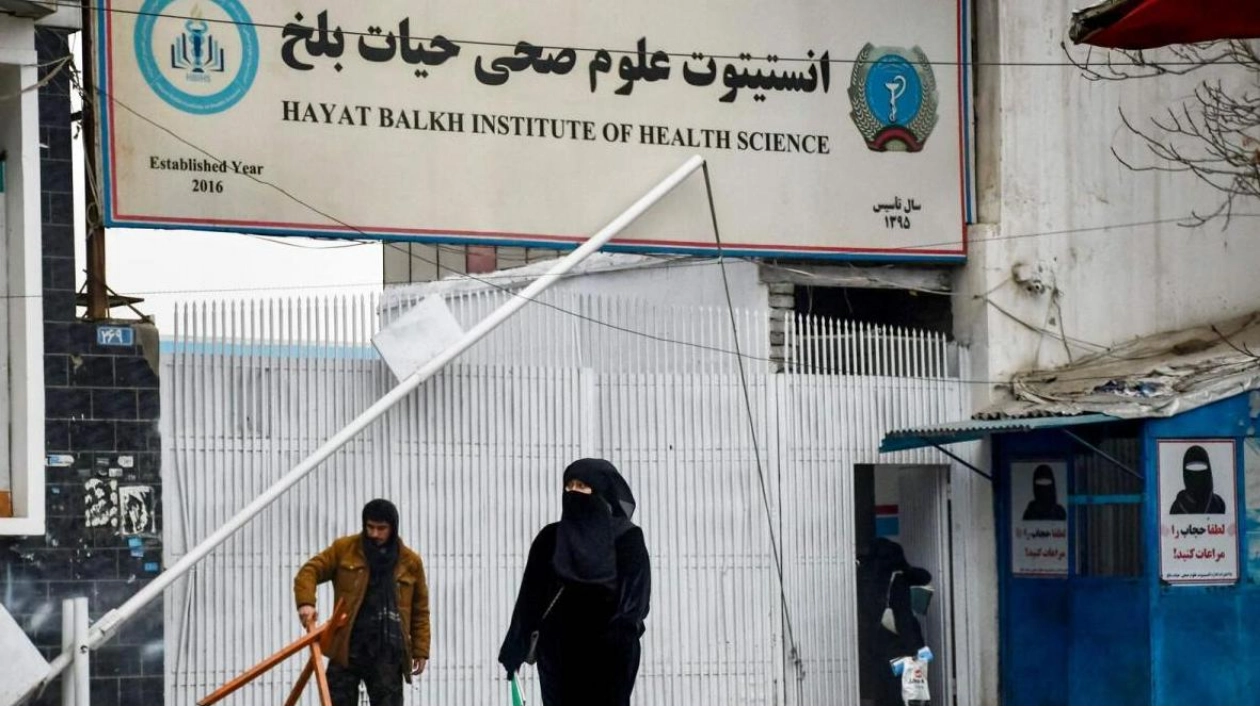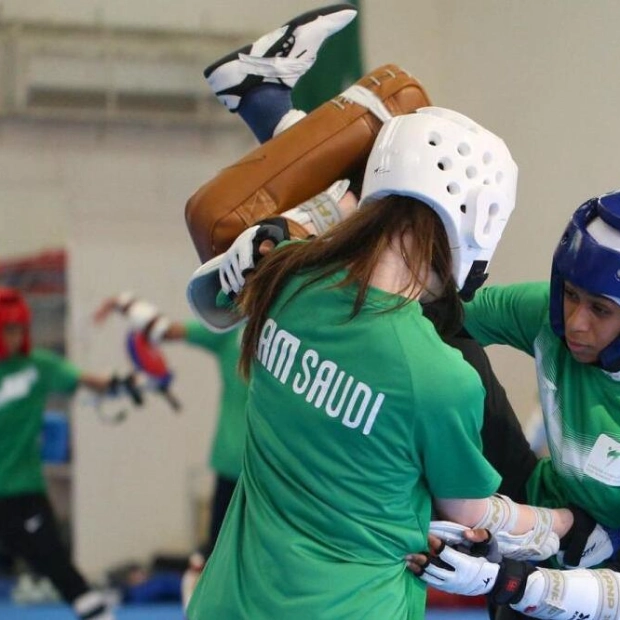An Afghan female student exits the Hayat Balkh Institute of Health Science in Mazar-i-Sharif on December 8, 2024. — AFP
For Saja, pursuing a nursing degree at a healthcare institute in Kabul was her final chance to achieve something meaningful after women were prohibited from attending universities in Afghanistan two years prior. However, the Taliban government has dashed this hope by reportedly instructing the exclusion of Afghan women from medical training, causing widespread panic among educational institutions.
When Saja, who had been enrolled in university before the ban, heard the news, she described it as "reliving the same nightmare." "This was my last hope to do something, to become something," said Saja, who asked not to use her real name. "Everything has been taken away from us for the crime of being a girl."
The authorities have neither issued an official statement nor responded to the numerous condemnations and calls to reverse this decision, which further restricts women's access to education. Since reclaiming power in 2021, the Taliban government has enforced numerous restrictions on women, making Afghanistan the only country globally to prohibit girls from education beyond primary school.
Multiple directors and employees of health training centers informed AFP that they were recently notified of an order, issued by the Taliban supreme leader and communicated verbally by the health ministry, to expel female students until further notice. Institutes across the country, which many women had turned to after the university ban, were given a few days to just over a week to organize final exams.
However, without a clear announcement or document clarifying the rules, confusion prevails in these institutions. Some told AFP they would continue operations as usual until they received written orders, while others closed immediately or hastily conducted exams before shutting down. Others declined to comment, citing warnings not to speak to the media.
"Everyone is confused, and no one is sharing what is really happening," said Saja, who was in her first year at a private institute. "We have been given two or three exams each day... even though we already finished our exams a few months back," said the 22-year-old, noting they had to pay fees to sit the exams.
The director of a Kabul private institute with 1,100 students, 700 of whom are women, said they received numerous concerned messages from students and teachers inquiring about the situation and asking, "Is there any hope?" "No one is happy," he told AFP from his office near women's classrooms, where the last lesson on the board advised managing stress and depression in patients.
According to a source within the health ministry, approximately 35,000 women are currently enrolled in around 10 public and over 150 private institutes offering two-year diplomas in subjects such as nursing, midwifery, dentistry, and laboratory work. The Norwegian Afghanistan Committee (NAC), a non-governmental organization that trains 588 women in institutes managed in collaboration with the health ministry, was verbally informed that classes were "temporarily suspended."
NAC country director Terje Magnusson Watterdal stated that this verbal notice must be taken "equally seriously as a written document," adding that "there are many high-ranking officials within the current government who are quite opposed to this decision." He hopes, at the very least, public institutes will be reopened to women.
International organizations like the United Nations, which has described Afghan women as victims of "gender apartheid," have already warned of the devastating consequences of this plan in a country with some of the highest maternal and infant mortality rates worldwide. Midwifery students, in particular, are deeply committed to their studies, according to Magnusson Watterdal.
"So many of these young women have been motivated to become a midwife because they have lost a mother or an aunt or a sister in childbirth," he said. "It's not just a profession that you choose; it's a vocation. So, of course, there's great desperation" among students and staff.
Small protests have been reported in various parts of the country, according to sources and images circulated on social media. Assal, another student using a pseudonym, received an expedited diploma last week but still holds little hope of finding a job in a country where unemployment is rampant and opportunities for women are increasingly scarce.
"I wanted to practice medicine and study further," the 20-year-old told AFP. "They had already taken everything from us. Next thing we won't even be allowed to breathe."
Source link: https://www.khaleejtimes.com






